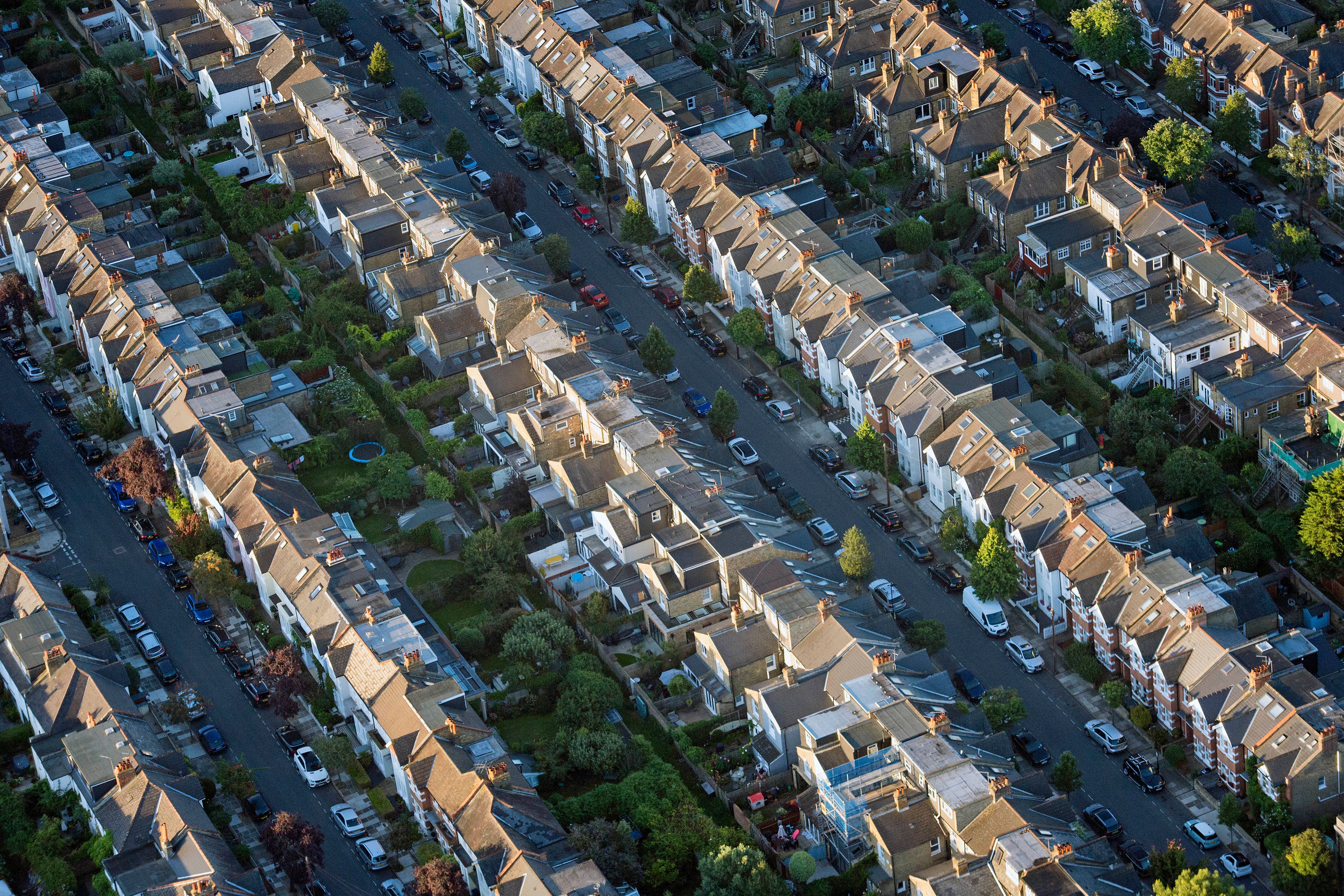UK house price growth stalled between August and September
Across the UK, typical property values remained unchanged between August and September 2022, the Office for National Statistics said.

House price growth stalled between August and September, although the average property value was still £26,000 higher than a year earlier, according to official figures.
Across the UK, the average house price in September was £295,000, which was £26,000 higher than a year earlier, the Office for National Statistics (ONS) said.
Average house prices increased by 9.5% over the year to September 2022, slowing from 13.1% annual growth in August 2022.
Across the UK, typical property values remained unchanged between August and September 2022, which also caused the annual percentage change to slow, the ONS said.
ONS deputy director for prices, Matt Corder, said: “House prices were flat between August and September, the first time we have not seen an increase in almost a year.
“The fall in annual house price inflation is mainly because of the sharp rise in house prices in September 2021 at the end of the stamp duty holiday last year.”
The average house price in Scotland increased by 7.3% over the year to September, slowing from an increase of 8.8% in the year to August. The average house price in Scotland in September was £192,000.
In Wales, property values increased by 12.9% annually, slowing from 14.3% annual growth in August.
Buyers have been keen to transact at pace in order to secure the rates currently on offer, before they climb even higher
The average house price in Wales was at a record level of £224,000 in September.
In England, house prices increased by 9.6% annually, slowing from 13.7% annual growth in August.
The average house price in England also sat at a record level of £314,000 in September, which was unchanged from August.
Within England, the South West had the highest annual house price inflation, with average prices increasing by 11.9% in the year to September. The North East had the weakest annual price growth, at 5.8%.
Get a free fractional share worth up to £100.
Capital at risk.
Terms and conditions apply.
ADVERTISEMENT
Get a free fractional share worth up to £100.
Capital at risk.
Terms and conditions apply.
ADVERTISEMENT
The average house price in Northern Ireland increased by 10.7% annually, pushing typical property values to £176,000.
The house price figures were released on the same day the ONS revealed that inflation jumped to a higher-than-expected 11.1% in October – the highest rate since October 1981 and up from 10.1% in September.
Andy Sommerville, director at property data provider Search Acumen said: “Today’s data is further evidence of a turning tide for house prices.”
Nicky Stevenson, managing director at estate agent group Fine & Country said: “Annual house price growth slowed in September against a backdrop of rising interest rates and shrinking disposable incomes.
“The mini-budget towards the end of the month sparked unprecedented volatility in the mortgage market, something which will become more apparent in the months ahead.
“All eyes will now turn to Chancellor Jeremy Hunt’s autumn statement, which is expected to include both tax rises and spending cuts.”
Jamie Durham, an economist at PwC UK, said: “While this data is from a couple of months ago and does not reflect the impact of the mini-budget, it is clear that the market was already starting to lose momentum in September.”
Malcolm Webb, technical director at Legal & General Surveying Services said: “Today’s data suggests that house prices are certainly starting to plateau, with consecutive rate rises and wider economic pressures applying the brakes on some of the momentum of the last two years.
“However, the market is currently something of a mixed bag. Property prices are still higher than they were at the same point last year and the slowdown that we’re seeing remains modest. Coupled with the shortage of available housing stock, market activity remains steady.
“Tomorrow’s budget statement should provide further details on the government’s ambitions for the housing market, but even without further changes, prospective buyers are likely already putting their own finances under the microscope.”
Jason Tebb, chief executive officer of property search website OnTheMarket.com, said: “Rising inflation, interest rates and the higher cost of living mean buyers have less buying power, so sellers who don’t price realistically may struggle to generate interest.”
Marc von Grundherr, director of estate agent Benham and Reeves, said: “While we may have seen a reduction in buyer demand due to higher mortgage rates, we’re simply not seeing any downward pressure applied to sold prices, despite a static rate of growth on a monthly basis.
“This is largely due to the fact that buyers have been keen to transact at pace in order to secure the rates currently on offer, before they climb even higher. In doing so, they’ve helped to maintain a consistent level of activity in the process which has kept the market afloat.”
Tom Bill, head of UK residential research at Knight Frank, said: “We expect mortgage rates to come down and a sense of stability to return as financial markets respond positively to the new government.
“However, the lending landscape is shifting after 13 years of ultra-low borrowing costs, which we believe will put enough downwards pressure on prices so that they return to their summer 2021 level.”
Avinav Nigam, cofounder of real estate investment platform IMMO, said: “Ultimately, we still have a severe shortage of quality, energy efficient housing – both for sale and for rent. Our needs have not changed: we all still need a roof over our heads.”
Bookmark popover
Removed from bookmarks